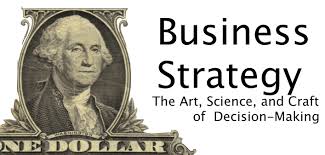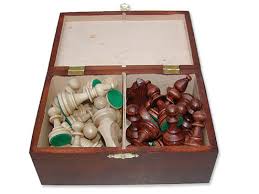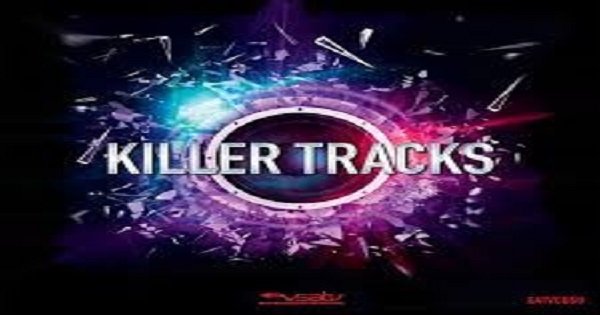By Johnny Dwinell
“When the game is over, the king and the pawn go into the same box.†– Italian Proverb
This can mean a lot of different things to a lot of different people. To me, in a way, it means that life is just a game and we are all relatively equal players who are capable of creating our own futures. As long as we believe we can achieve. As David Lee Roth so eloquently put it, “Life is a full contact sport; nobody gets out alive.†Then we all go into a box when it’s over. So this game requires strategy, some serious, deep, thought followed by action to play it like a king as opposed to a pawn. One of the things I like about professional chess competitions is the timer; it requires action.
So what is your strategy? It’s amazing to me how easy it can be to put together a winning strategy when you have accurate information and common sense.
My next question would be what action will you take to execute this strategy? The timer in your game is ticking; make a move.
The good news is that in the entertainment industry, strategy and action are more important than your talent; that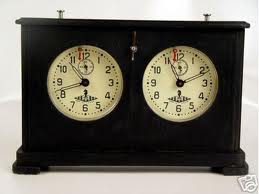 is to say, a killer strategy and the fearlessness to take action are often THE most important talents an artist possesses. I’m quite sure you all have a few examples swimming around in your head right now of hugely successful artists that you feel have zero talent; you know I’m right. Now you know why. It is a fact that when Kelly and I are considering talent to develop, we will take a mediocre talent with unstoppable drive and massive work ethic over some artist with a HUGE talent who is lazy and wants to press the “easy†button to succeed.
is to say, a killer strategy and the fearlessness to take action are often THE most important talents an artist possesses. I’m quite sure you all have a few examples swimming around in your head right now of hugely successful artists that you feel have zero talent; you know I’m right. Now you know why. It is a fact that when Kelly and I are considering talent to develop, we will take a mediocre talent with unstoppable drive and massive work ethic over some artist with a HUGE talent who is lazy and wants to press the “easy†button to succeed.
I’ve compiled 6 steps that songwriters can use to create a real strategy for success.
Â
Strategy 1:
Always be writing with no censorship; never pump the brakes on the creative flow of ideas. After you fill up 3 pages  of possible lines, then you go back and pick or cultivate the strongest lines to put them together in your song, but you never censor before you put pen to paper. Always be writing because writing is a muscle that needs to be developed. The more you work it out, the stronger it gets. I highly recommend that you purchase The Artist’s Way by Julia Cameron. Don’t let the “Spiritual†part of the title scare you; there is nothing religious in there. This book offers up a 12 week program that will teach you to get out of your own way artistically when it comes to writing. The link I provided is one retailer, you can find this book anywhere so I provided one link to get you started. J
of possible lines, then you go back and pick or cultivate the strongest lines to put them together in your song, but you never censor before you put pen to paper. Always be writing because writing is a muscle that needs to be developed. The more you work it out, the stronger it gets. I highly recommend that you purchase The Artist’s Way by Julia Cameron. Don’t let the “Spiritual†part of the title scare you; there is nothing religious in there. This book offers up a 12 week program that will teach you to get out of your own way artistically when it comes to writing. The link I provided is one retailer, you can find this book anywhere so I provided one link to get you started. J
Â
Strategy 2:
You should be writing with as many different people as possible. Common sense says that the more people you work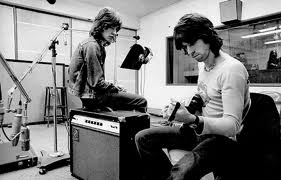 with the more your circle of influence will expand; consequently so will your rolodex. In other words, more people are going to hear your work, which creates more opportunities for your songs on an exponential level. You will always pick up different little tools from different writers that will help your productivity in a writing session.
with the more your circle of influence will expand; consequently so will your rolodex. In other words, more people are going to hear your work, which creates more opportunities for your songs on an exponential level. You will always pick up different little tools from different writers that will help your productivity in a writing session.
Â
Strategy 3:
Go Where the Food Is – If you are trying to be a serious songwriter from Des Moines, IA, then the talent pool is  understandably going to be shallow; again, common sense. I know this is true because all the serious writers from Des Moines live in LA, NYC, or Nashville.
understandably going to be shallow; again, common sense. I know this is true because all the serious writers from Des Moines live in LA, NYC, or Nashville.
Why don’t you? After all, this is where the business is happening. One can’t go shark hunting in Des Moines, because there are no sharks, right?
Â
Strategy 4:
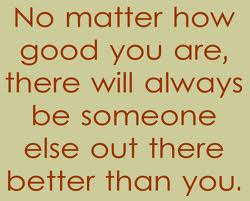 Write with people who are better than you. You need mentors to mentally expand your grasp on the craft of songwriting; and it is a craft. These mentors will mentally expand your understanding of the business end as well. If you are working with people who are not as serious about the work as you are, you have stopped moving forward. You have to set up your game to achieve momentum. I promise you will not achieve momentum through the mail.
Write with people who are better than you. You need mentors to mentally expand your grasp on the craft of songwriting; and it is a craft. These mentors will mentally expand your understanding of the business end as well. If you are working with people who are not as serious about the work as you are, you have stopped moving forward. You have to set up your game to achieve momentum. I promise you will not achieve momentum through the mail.
No publisher is going to hear the song you sent in and call you in your little town to deliver the good news; this is a fairy tale, not real life. In real life, ANY progress in ANY industry is built on relationships. All Ford automobiles come with Firestone tires because of a 100 year old relationship between Henry Ford and Harvey Firestone. Relationships with other writers, with publishers, with music supervisors, with artists, with producers, with label executives, etc, are what is going to create opportunity and momentum for you. BTW, publishers are no longer developing writers just like labels aren’t developing talent. That was 10 years ago. The only way anyone gets a publishing deal these days is if they have some sort of social proof that their songs have value in the marketplace, i.e. a hit song. Before you get yourself a hit, you are not going to get a publishing deal.
Â
Strategy 5:
You need to write with as many artists as possible. Be a student of the game. Think like a king, and you’ll play like a  king. Thinks like a pawn, and you’ll play like a pawn. Record labels are not developing talent because they are no longer making money on the records. Labels need other revenue streams. Back in the 90s, artists like Tim McGraw, Kenny Chesney, and Garth Brooks, who didn’t write their own material, could exist and thrive on a major label because the labels made millions off of record sales. If you really look at country music in the last decade you will see that all the newer successful acts write or co-write their own material (Lady A, Miranda Lambert, Blake Shelton, Taylor Swift, Brantley Gilbert, Jamey Johnson, etc.). Major labels have gravitated towards this business model of signing artists who write or co-write their own material because they can demand publishing from an artist who has it to give. Thus, labels create a very important revenue stream that is integral to the 360 record deals.
king. Thinks like a pawn, and you’ll play like a pawn. Record labels are not developing talent because they are no longer making money on the records. Labels need other revenue streams. Back in the 90s, artists like Tim McGraw, Kenny Chesney, and Garth Brooks, who didn’t write their own material, could exist and thrive on a major label because the labels made millions off of record sales. If you really look at country music in the last decade you will see that all the newer successful acts write or co-write their own material (Lady A, Miranda Lambert, Blake Shelton, Taylor Swift, Brantley Gilbert, Jamey Johnson, etc.). Major labels have gravitated towards this business model of signing artists who write or co-write their own material because they can demand publishing from an artist who has it to give. Thus, labels create a very important revenue stream that is integral to the 360 record deals.
Creating real relationships with up-and-coming artists is now the way you are going to break yourself as a songwriter. Hell, it’s the way many artists like Jamey Johnson have broken themselves, through writing hit songs with other artists. Does this make sense? You want one of those artists to get some traction with your song; it just takes one and then everyone in town will think you mean money.
Â
Strategy 6:
Be realistic and aware of the market you are writing for; a KILLER song where the lyrics are outdated is not going to  get any attention because those lyrics aren’t currently selling. For instance, country songs in the 90’s were very story oriented like Tim McGraw’s Don’t Take the Girl. in the first verse the boy is 8 years old, in the second verse, he’s 18 years old, in the last verse he’s 23. Compare that to one of Tim’s more recent hits, One of These Nights, and you can see a definite change in the lyric style. These styles trend like anything else and staying on top of the trends will help you increase opportunities for your songs. The fact is while Don’t Take the Girl was a #1 hit in the 90s, it wouldn’t fly in today’s market.
get any attention because those lyrics aren’t currently selling. For instance, country songs in the 90’s were very story oriented like Tim McGraw’s Don’t Take the Girl. in the first verse the boy is 8 years old, in the second verse, he’s 18 years old, in the last verse he’s 23. Compare that to one of Tim’s more recent hits, One of These Nights, and you can see a definite change in the lyric style. These styles trend like anything else and staying on top of the trends will help you increase opportunities for your songs. The fact is while Don’t Take the Girl was a #1 hit in the 90s, it wouldn’t fly in today’s market.
People will always tell you that you need to get lucky, even hit writers in this town will say that. The reality is that 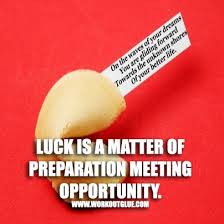 those hit writers and you will have created their own luck. Have you ever heard the old adage “the harder I work, the luckier I get� Luck is defined as: preparation meets opportunity. Strategically speaking, you need to ensure that you are not only preparing, but preparing intelligently, i.e. moving forward and learning from good professionals. If you position yourself in an environment that is rife with opportunity, your day will come; you’ll get the lucky opportunity and be prepared with the perfect song to take advantage of that opportunity!
those hit writers and you will have created their own luck. Have you ever heard the old adage “the harder I work, the luckier I get� Luck is defined as: preparation meets opportunity. Strategically speaking, you need to ensure that you are not only preparing, but preparing intelligently, i.e. moving forward and learning from good professionals. If you position yourself in an environment that is rife with opportunity, your day will come; you’ll get the lucky opportunity and be prepared with the perfect song to take advantage of that opportunity!
Please SHARE this content if you find it beneficial and please leave a comment below!
[ois skin=”Bottom Post”]

